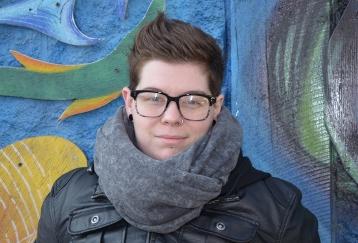The Carleton University Students’ Association (CUSA) has voted to amend its discrimination policy in a move some students worry will allow anti-choice groups to establish a stronger foothold on campus and allow discrimination against minority communities, including queer students.
The amendments, passed Dec 12, removed specific reference to any student group, including Carleton Lifeline, an anti-choice group that CUSA expelled from campus in 2010. CUSA also removed a clause banning anti-choice groups from using student resources and funding. These amendments passed by a vote of 19 to seven.
National Campus Life Network’s Rebecca Richmond says the amendments are a positive step for CUSA.
“It looks like it will finally help them respect the free speech of pro-life students,” Richmond says. “If you’re saying that a group cannot have the same privileges as other groups on campus simply because they take a particular stance on a human rights issue . . . that equates to discrimination.”
Vanessa Chipi, the university’s arts and social sciences councillor, who introduced the motion, did not respond to several requests for comment.
The amendments officially change CUSA’s stance from pro-choice to neutral says Ben Diaz, faculty of arts and social science councillor.
Erica Butler, programming coordinator for Carleton’s GLBTQ Centre, says CUSA’s former pro-choice stance is crucial to ensuring students have agency over their own bodies.
“Funding groups that seek to remove reproductive rights from students is sexist and demeaning, as well as contradictory to the protection of students’ rights,” Butler said at CUSA’s Dec 12 meeting.
While the policy now says CUSA must work to prevent groups that promote hate or discrimination from demonstrating on campus, one new clause states all CUSA employees will encourage positive and respectful discussion of all opinions and beliefs without discrimination against those with differing views.
Gabrielle Castilloux, president of Carleton’s First People’s Council, and Kaylee Cameron, Carleton councillor, created a petition against the amendments. Castilloux and Cameron accuse CUSA of purposely staging the vote during exams, ensuring most students were too busy to attend the meeting. Castilloux and Cameron collected close to 200 signatures and presented the petition to CUSA at the Dec 12 meeting.
Some believe the amendments will make campus a less friendly place for queer students. Diaz says the clause about “positive and respectful discussion” will force queer students to justify their existence.
“The big problem with a lot of homophobia and racism is that people don’t think what they are saying is in fact discriminatory,” Diaz says. “To go into the GLBTQ Centre and say, ‘I don’t believe homosexuals should be able to get married’ or ‘I don’t believe that “trans” exists’ creates an environment where students then have to justify their very existence under the guise of free speech. It opens up students to be discriminated against, opens up students to violence and to feeling ashamed about their bodies.”
Diaz says he filed a complaint with Student Affairs against Chipi because of homophobic comments she made in the past.
Dillion Black, a trans activist and Carleton councillor for the department of public affairs, says Chipi is anti-choice, and CUSA members who voted in favour of the amendments are not being honest about their intentions or the impact the amendments will have on the university’s marginalized communities.
“I think they weren’t being honest with the motivations or intentions of this motion,” Black says. “They weren’t being honest with the impact this motion will have. For them it was about having certain groups on campus, which have had violent histories, to be able to have access to student space and funding. Now people going to the centres are being put in situations where they have to enter into conversations that are based on premises that should not exist.”
Black and Arun Smith, coordinator of Carleton’s Challenge Homophobia and Transphobia campaign, say they aren’t letting the amendments pass without a fight.
“There’s a lot of things that are still being discussed as to how we move forward from this. It’s a big loss,” Smith says. “We are making sure everybody who is affected by this has communities where they can feel safe and supported.”
Black plans to raise awareness on campus and mobilize students to get involved in the fight against the amendments.
“I have no intention of letting it go,” Black says. “We need to protect safer spaces on campus.” Petition against CUSA amendments to their “discrimination on campus” policy


 Why you can trust Xtra
Why you can trust Xtra


